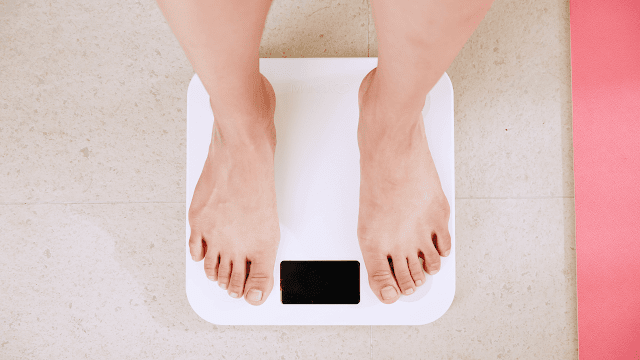Diet Without Fat How-To Eat in a Lighter Way
March 18, 2023Anyone who likes
to maintain a healthier lifestyle knows that minimizing excess fat is one of
the most important aspects of a diet. This is because the human body cannot
fully digest trans fats (which are more harmful) and have the potential to
increase bad cholesterol (LDL) levels in the blood. However, it must be said
that there are also beneficial fats, which are good for the heart and also help
to lower cholesterol, such as unsaturated and monounsaturated fats. For you to
put together a lighter menu, we separate some tips.
The fat-free diet
has become popular in recent years, mainly because of its promise of helping
with weight loss and improving health. However, it is important to understand
that not all fats are bad for the body and that their total elimination can
have negative consequences for health.
The fat-free diet encourages the elimination of saturated fats from the menu, present in foods such as fatty meats, yellow cheeses, whole milk and butter. Instead, it is recommended to consume unsaturated fats, present in fish, olive oil, nuts and avocado.
Although this diet can bring health benefits, such as lowering bad cholesterol and preventing heart disease, it is important to be careful not to fall into the accordion effect. This occurs when the person follows the diet for a while, loses weight and then goes back to eating as before, regaining all the weight lost.
Also, to make up for the lack of fat, some people tend to consume excess carbohydrates, which can lead to weight gain and other health problems, such as diabetes. Therefore, it is important to have balance in the diet and not eliminate any essential nutrient for the body.
A fat-free diet can bring health benefits when carried out in a balanced way and accompanied by an area professional. However, it is important to be careful not to fall into the accordion effect and not completely eliminate fats from the diet, as they are essential for the proper functioning of the organism.
Reduce the proportion of red meat.
For those who yearn for a diet with less fat, a fundamental piece of advice is to try to minimize the consumption of meat, especially red meat. This is due to the fact that they are rich in saturated fats, which are also harmful to the body - they can increase bad cholesterol and cause blockages in the vessels, which causes serious problems for the heart and, in the most serious cases, ends up leading to heart failure. cardiac arrest, a myocardial infarction.
To avoid storing this fat in the body, the ideal is to eat small pieces of meat and, if possible, try to replace them with fish. Remember that meat also has relevant nutrients for the body, such as vitamin B12 and iron. In addition to red meat, various milks and derivatives, frozen lasagna and other industrialized products are also a source of saturated fat. So try to consume these foods in moderation. An excellent tip is to constantly consult the label to find out the precise portion of fats and other nutrients that the product has.
Avoiding fried foods on a daily basis is another key point for those looking for a healthy diet. That's because during the frying process, the food is submerged in oil, so that it absorbs all the saturated fat. Therefore, what can be done is permanently eliminate fried foods at home (potatoes, pastries, snacks, breaded products, etc.) and give preference to baked, boiled or grilled foods. Another interesting tip is to use electric fryers, which fry food using heat, without the use of oil.
Forget margarine and microwave popcorn
There are certain foods that you can also give up, like the successful microwave popcorn. Many people end up opting for it due to the practicality of its preparation. The problem is its high concentration of trans fats, which are the most harmful to our health. Other industrialized foods, such as margarine, stuffed cookies, chocolates, packaged and frozen snacks (like pizzas and lasagnas) and even instant noodles are also very fatty options. Therefore, you should avoid consuming these foods as much as possible. The more natural your daily menu is -with vegetables, fruits and greens-, the less fat you will consume.
Avocado is a fatty fruit, but very beneficial for health.
In the "fat but convenient" food group, avocado is one of the most important. This fruit is rich in monounsaturated fat, which inhibits the absorption of bad cholesterol and is very beneficial for the heart system. Another positive point is that it is also rich in antioxidants, vitamins and potassium. In addition to avocados, there are other foods, such as oilseeds (walnuts, almonds, Brazil nuts, etc.), which are rich in monounsaturated fats.
Below are more advantages and disadvantages of the low-fat diet:
Advantages of the Fat-Free Diet:
Weight reduction: the elimination of saturated fats can lead to weight reduction, since fats are the most caloric among nutrients;
Improved cardiovascular health: Saturated fats increase bad cholesterol (LDL), which can cause cardiovascular problems. A fat-free diet can help prevent heart disease;
Reduced inflammation: Some saturated fats are pro-inflammatory and can contribute to chronic inflammatory conditions such as arthritis, asthma and heart disease. A fat-free diet can help reduce these inflammations;
Increased consumption of fruits and vegetables: The fat-free diet encourages the consumption of fruits and vegetables, which can have many health benefits.
Disadvantages of the Fat-Free Diet:
Nutrient deficiency: the total elimination of fats can lead to a deficiency of essential nutrients for the body, such as omega-3 and omega-6 fatty acids, in addition to vitamins A, D, E and K;
Accordion effect: as mentioned earlier, the fat-free diet can be difficult to sustain in the long term, which can lead to the accordion effect, that is, weight gain again after the diet;
Excessive consumption of carbohydrates: to overcome the lack of fat in the diet, many people end up increasing their consumption of carbohydrates, which can lead to weight gain and health problems;
Mood swings: Fats are important for the proper functioning of the brain, and a lack of them can lead to mood swings, such as irritability and anxiety.
According to the World Health Organization (WHO) , fat intake should not exceed 30% of daily calories consumed. This means that the total elimination of fats may not be healthy for the body. In addition, the consumption of good fats, such as those found in fish, nuts and avocado, can bring many health benefits, provided they are consumed in moderation. Fatty acids are also part of the group of beneficial fats and can be found in avocado, fish like salmon and sardines, oilseeds, pumpkin seeds, sunflower seeds and vegetable oils. Therefore, if you want to eat beneficial fats, a good tip is to incorporate these foods into your menu, but always in moderation!




.png)



0 Comments
Note: Only a member of this blog may post a comment.